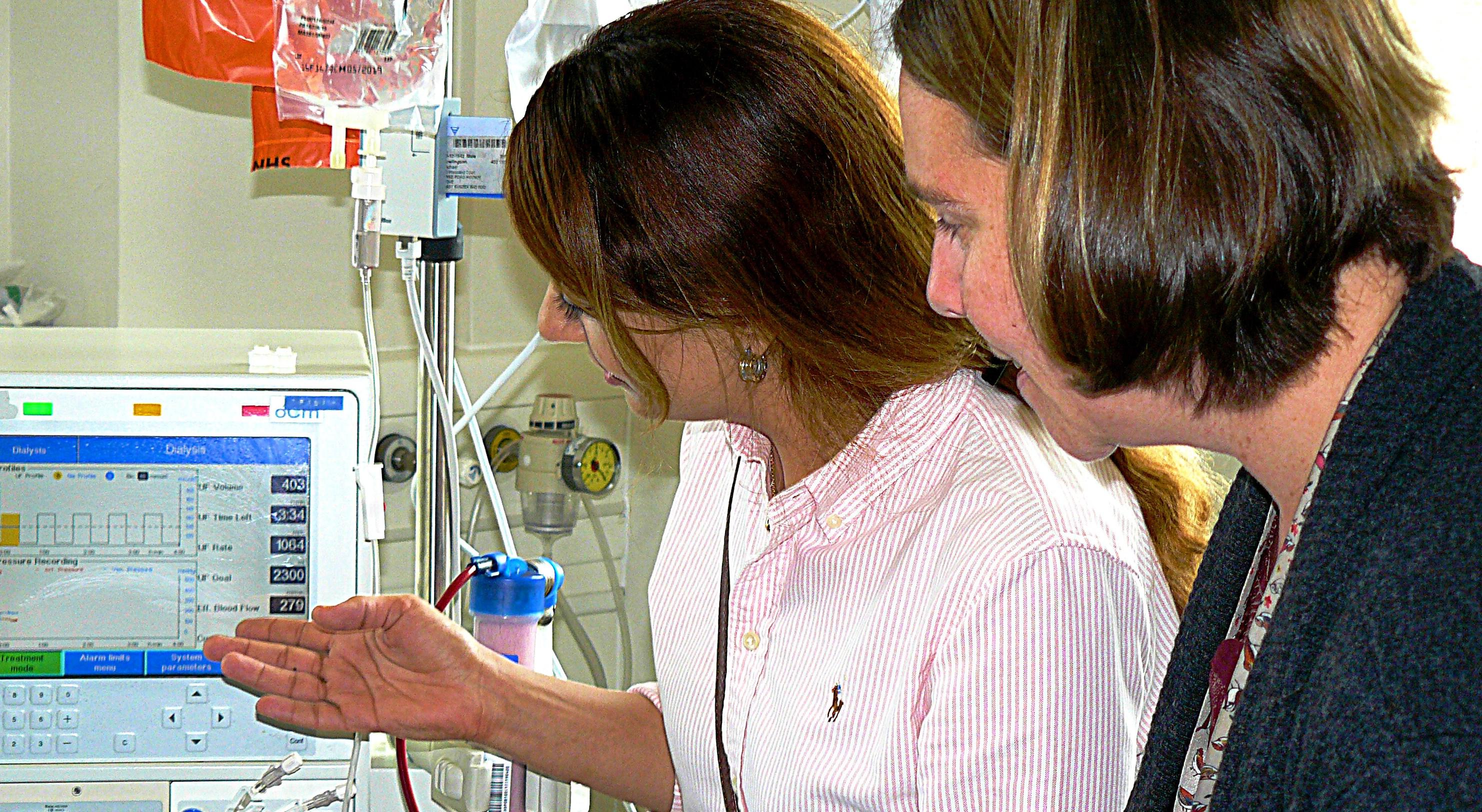
3 minute read
Renal Medicine
Renal medicine in Brighton is provided by the Sussex Kidney Unit (SKU) which is purpose built and contains a 26 bedded renal ward, the 50 station main dialysis unit, the Buckfield Home Dialysis centre as well as a suite of clinic rooms. SKU provides tertiary level renal care to the 1.2 million people, presenting trainees with a broad range of conditions.
There are two fully equipped procedure rooms with image intensifier and modern ultrasound facilities for central line insertion and renal biopsy procedures. The Stirling Day unit offers a flexible service to patients including the weekly, registrar-led renal biopsy procedure list. SKU provides all forms of renal management including haemodialysis, peritoneal dialysis, dialysis for acute kidney injury and plasma exchange. Renal transplant work up is completed locally with trainees exposed to both donor and recipient work-up. Transplant surgery takes place at St Georges or Guys Hospitals. There are currently 500 transplant patients receiving follow up from one month post-transplantation (both kidney alone and SPK), 500 CKD/low clearance patients, over 500 haemodialysis patients, 150 vasculitis patients and a weekly clinic for those with glomerulonephritis and SLE on immunosuppression.
Advertisement
There are close links with the Clinical Infection Team for patients with blood borne viral infections and renal disease and also with the Children’s Hospital with joint clinics for both. Home haemodialysis has been well represented for many years now and investments in new technology are allowing us to expand this service to include even more patients. The Buckfield Home Dialysis centre contains space to dialyse in a group and alone for all the steps to pa-
WHAT OUR TRAINEES SAY Dr Kunaal Kharbanda
Having completed part of my foundation training and core medical training within the Kent, Surrey & Sussex (KSS) region I was keen to stay on for higher specialist training. The scheme is geographically friendly so that you can base yourself in one area for most of your training, either in Sussex or Kent.
Spending the majority of my training in a single unit has allowed me to get to know the staff very well with good support from the consultants. There is exposure to a wide range of Nephrology services and ample opportunity to gain competencies in the required practical procedures. The department functions very well as a multidisciplinary team which allows training from a wide range of specialised staff.
I completed my transplant placement in London at St Georges Hospital which has given me valuable exposure to the acute care of kidney transplant recipients. I have also spent a year at Worthing Hospital for my General Internal Medicine placement. At present, I am out-ofprogramme, based in Manchester where I have started research in the field of home haemodialysis as part of an MD.
Sussex has been an excellent place to live during my training. Brighton is a vibrant and diverse city with the South Downs on your doorstep and London only an hour away. The training programme has been enjoyable and I feel prepared for my CCT.
RENAL MEDICINE
tient independence. Peritoneal dialysis catheters are inserted within the unit so trainees are exposed to all aspects of home dialysis management. In centre haemodialysis also takes place in satellite units at Eastbourne, Crawley, Bexhill and Worthing with nephrology outreach clinics in Bexhill, Eastbourne and Worthing. The department is well staffed with 10 renal consultants, 2 part time consultants, a low clearance nurse consultant, 3 specialist dieticians, 2 specialist pharmacists, a social worker and 3 renal counsellors. We work together as a multidisciplinary team to provide high quality holistic care.
Teaching
There are fortnightly 2 hour sessions for the registrars delivered by the renal consultants on curriculum mapped subjects in preparation for the MRCP(Neph), as well as regional training days for both renal and general internal medicine. Weekly medical grand rounds and the fortnightly renal journal club are high quality and feature external speakers. The department has a biopsy simulator to facilitate up-skilling in native renal biopsy procedure. There is time in the rota and encouragement to pursue audit and QIP projects and several trainees have been successful in carrying out clinical research projects whilst in post.
Research
Several trainees have successfully completed clinical research projects, which have been showcased at national and international for a, including the regional SWEKS meeting. Support in planning and accessing suitable supervisors for out of programme activities are available, with further research opportunities at BSMS. There is one Teaching/ Simulation fellow post to which trainees can apply to pursue OOP in conjunction with BSMS.
For more information please contact clare.castledine@nhs.net sarah.lawman@nhs.net










